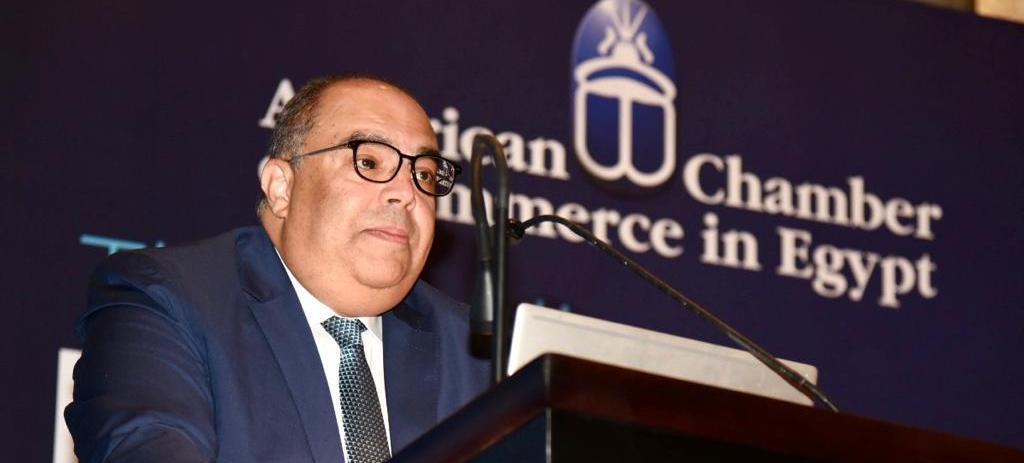Egypt enters 2023 with an economy riddled by challenges that will likely surpass those arising from the 2016 float of the pound. That was when the pound lost half of its value against the dollar, causing inflation to exceed 30% for the first time in Egypt’s recorded history.
In 2023, domestic factors haunting Egypt’s economy include the pound losing nearly 56% of its value against the dollar in the official market, record high foreign debt and inflation more than doubling in 2022 despite rising interest rates. Those higher rates stifle the economy further, threatening GDP growth. The Central Bank’s (CBE) decision in December to end all low-interest loan initiatives amplifies that gloomy outlook.
Internationally, the Russia-Ukraine war continues to cause uncertainty regarding prices and the supply of goods in the global market, particularly energy and food. In November, retired Major General Mick Ryan told Newshub that Moscow will “prolong the Russia-Ukraine war into and through 2023.”
That puts pressure on the government to implement a sound investment plan in 2023 to stabilize its finances, attract FDI and increase exports, even as Egypt’s major trade partners face their own economic challenges. During the Egypt Economic Conference in October, the government highlighted its vision of what needs to happen this year to create a better business environment.

Macroeconomic targets
The first point the government addressed in its recommendations document was macroeconomic policies to “improve and upgrade the quality of economic growth.” The government said it would rely more on investments and exports rather than consumption.
The document stressed the private sector would have a central role in the government’s “umbrella” strategy. That is why the government needs to boost maximum production capacity, particularly in feeding industries. The paper added that new jobs should create inclusive growth and sustainable employment opportunities.
Another point of importance is the Central Bank of Egypt’s (CBE) role in ensuring fiscal and monetary policies don’t conflict while stressing the latter’s independence. The recommendations document said there must be “coordination” between fiscal and monetary policies to stabilize the economy, raise GDP growth and clearly understand how policies affect each other.
Throughout 2023, the CBE will tackle inflation. However, the paper said there would be new, higher targets from the current 9% plus-or-minus 2%. The government said reaching those new benchmarks would happen in the “medium term.”
The third point was the need for a “flexible” foreign exchange rate to absorb external shocks. The paper also stressed the pound exchange rate needs to be measured against a basket of currencies and not solely on the dollar. That is a significant shift in long-standing policies.
The recommendation paper said Egypt needs to publish an index that calculates the pound’s value against major currencies and gold. There also would be a currency derivatives market to curb exchange risks. It said this would be ideal for FDI and foreign portfolio investors.
Another macroeconomic concern is government spending. The recommendation document noted the national budget must include allocations for sustainable investments, which should strengthen oversight of government spending.
The document stressed the need to rely on domestic financing of “strategic projects.” Local financial institutions, therefore, should create sound and sustainable financing solutions for the private sector that compete with foreign-currency-denominated funding, which the government must repay in hard currency.
The government also wants to reform the country’s tax system by increasing collections, digitizing Egyptian Tax Authority operations and broadening the taxpayer base by including the informal sector. Additionally, the government aims to integrate the tax and customs systems.
Regulating exits also is vital for investor confidence. The recommendations document said laws governing foreign capital exits should be similar to those of other countries. That would also protect Egypt from a sudden outflow in foreign currencies, such as what happened after the Russia-Ukraine war began in February when $20 billion left Egypt.

Building capacity
The second pillar of government recommendations is to promote and support the local private sector, particularly SMEs, via various “direct incentives.” The target is for the private sector to account for 65% of Egypt’s GDP within three years (2025).
Increasing the number of privately held companies is one way to raise GDP. The document said the state will always prefer to exit from enterprises by listing them on the stock exchange or selling them to “strategic” investors. The criteria for deciding the exit strategy would be the amount of foreign currency inflow from the sale, technology transferred to Egypt due to the exit and incoming investors’ ability to export.
However, the document noted the government would partially exit Egypt’s economy. In the sectors it invests in, the government can have a “dominating, limited or impactful presence.” The primary determinant would be the market share of government-owned companies and their local economic and social implications. Accordingly, the government should review the role of the Ministry of Public Enterprises in light of this strategy.
The recommendations paper also noted the need to create a database of government assets and identify and capitalize on underutilized ones. That would require funds likely to be contributed through the Ministry of Finance, The Sovereign Fund of Egypt (TSFE) and the CBE.
In light of its ongoing economic presence, the government must affirm a level playing field for all Egypt-based companies in terms of taxes, regulations, laws and preventing monopolies.
The recommendations paper said there needs to be a center for investors to voice grievances and problems involving state-owned firms. The competition authority and an anti-monopoly government body would process those complaints. The paper also stressed the need to create a High Council for Fair Competition that provides public reports about investment in Egypt.
Introducing incentives
The document tackled the need to evolve and expand the role of the General Authority for Investment and Free Zones (GAFI). The paper said GAFI needs to contribute more by introducing investor-friendly legislation and tackling bureaucratic obstacles.
The priority is revising fees investors pay to become legal entities in Egypt with the right to open offices and factories. The recommendations paper said that would require a meeting of the ministries of finance, planning and economic development, and GAFI to agree on those new fees. The report said no other agency could introduce additional costs without Cabinet authorization.
It also recommended creating another inter-governmental agency comprising GAFI and the ministers of planning and justice. It would work with Parliament’s Economic Committee to develop, modify and annul laws and regulations and agree on private-sector incentives.
Problematic legislation cited in the document includes the various enterprise laws published during the 1900s, the limited and joint stock law (Law 59 for 1981), and bankruptcy and liquidation laws. Updates also will cover how legal authorities deal with companies charged with crimes or violating labor laws and regulations related to training and upskilling.
The third committee that the paper recommends involves the Ministry of Trade and Industry, Ministry of Planning and Economic Development, and the Micro & SME Development Authority. It would quickly respond to complaints from startups and small and medium-sized enterprises.
The committee’s work would be complemented by creating a TSFE sub-fund to finance startups. That aligns with the paper’s recommendation of increasing dependence on local sources to fund businesses and projects.
Another central point to tackle is bureaucracy. The recommendations paper said government agencies must publish the documents they need to process investors’ requests and the deadlines for approving or rejecting them.
The recommendations document stressed ongoing communication with local and foreign investors to ensure the government is continually updated with what investors want and need. The paper also recommended relying more on information from embassies, international trade bureaus and other foreign resources on the ground to identify how the government might improve Egypt’s business environment.
Finally, it discusses creating a marketing campaign to raise awareness of government incentives for businesses. It also talks about establishing more economic and industrial free zones across the country.

Export incentives
The Economic Conference’s recommendations emphasized that Egypt-based manufacturers that import equipment and machinery for their factories must be exempt from restrictions introduced after the start of the war in Ukraine. The report said that would ultimately help them export, increasing Egypt’s foreign currency inflows.
The recommendations also aim to upgrade the Export Support Program (ESP) by ensuring immediate payments to importers, making the ESP an effective tool for companies, building government credibility and supporting the economy.
The document said the annual ESP budget should be part of the national budget and updated yearly in line with government export targets. Also, reimbursements should not be taxed.
The paper added that the government should focus on promoting exports to stable foreign markets and industries where Egypt has a competitive advantage. It should launch an overseas marketing campaign similar to the one promoting tourism. Priority target markets should be European, African and Arab countries.
The document also noted the importance of upgrading sea, land and air freight routes, with the government transporting export-bound perishable goods to seaports as quickly as possible. Lastly, the paper recommends that Egypt integrate into global supply chains to reduce delays in reaching target destinations.







